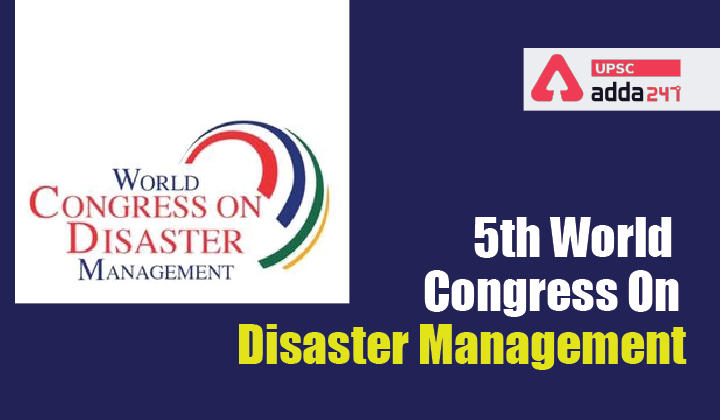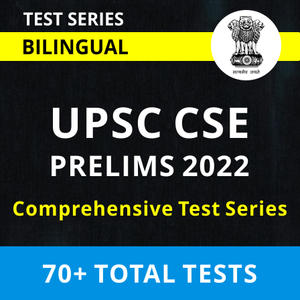Table of Contents
World Congress on Disaster Management: Relevance
- GS 3: Disaster and disaster management.
World Congress on Disaster Management: Context
- The fifth World Congress on Disaster Management was organised from November 24-27, 2021 at the IIT Delhi campus with the overarching theme of “Technology, Finance and Capacity for Building Resilience to Disasters in the Contexts of Covid-19”.
About World Congress on Disaster Management
- WCDM is a unique initiative of DMICS (Disaster Management Initiatives and Convergence Society) to bring researchers, policy makers and practitioners from around the world in the same platform to discuss various challenging issues of disaster risk management.
- WCDM has emerged as the largest global conference on disaster management outside the UN system.
- Four editions of WCDM have been held so far. The first WCDM took place in 2008 in the Hitech city of Hyderabad.
5th World Congress on Disaster Management (WCDM): Key points
- The 5th WCDM was hosted by the Union Defence Minister, Rajnath Singh.
- The union minister asserted that time and again India has proved itself to be “first responder” in the Indian Ocean Region (IOR).
- The COVID-19 pandemic has reaffirmed the “centrality of multilateralism” in our interconnected world for the matters of international security and disaster management.
India: The First Responder
- India has a unique position in the IOR, which is complemented by a capable armed force.
- These factors enable India to contribute significantly in Humanitarian Aid and Disaster Relief (HADR) situations.
- Some of the HADR missions in the IOR undertaken by India in recent years
- Operation Rahat in Yemen in 2015,
- Cyclone in Sri Lanka in 2016;
- Earthquake in Indonesia in 2019;
- Cyclone Idai in Mozambique and
- Flooding and landslips in Madagascar in January 2020
- India is also conducting regular exercises to deepen the HADR co-operation and co-ordination among the neighbours and friendly countries.
- Proactive approach: Initiatives like SAGAR (Security and Growth for All in the Region), Coalition for Disaster Resilient Infrastructure (CDRI).
World Congress on Disaster Management: Way forward
- The impact of COVID-19 pandemic on the 2030 Sustainable Development Goals (SDG) agenda must be assessed comprehensively and the lessons learnt should be incorporated in global and national strategies for the implementation of the SDGs (Sustainable Development Goals).
- The benefits of cutting-edge technologies emerging in the fields of space, communication, bio-engineering, bio-medics and Artificial Intelligence should be shared with all, along with funding initiatives for capacity development for better application and use of these technologies in the local contexts.
Also Read:
| Assam Model Tenancy Act 2021 | SPIN scheme | Shoonya Campaign | Arsenic Found in Wheat, Potato in Rural Bihar |
| Reforms in Urban Planning Capacity in India | Trade and Development Report 2021 | Trade and Development Report 2021 | Euro Green Bond |
| The History of Backward Classes Commission And the Sub-Categorisation of OBCs | Elderly Population Of India: Expert Committee On Longevity Finance | Impact of US Inflation in India | Pradhan Mantri Awas Yojana- Gramin |
| India Rejects WTO Draft on Fishery Subsidy | Supreme Court Allows Legal Sand Mining in Rajasthan | ADR Report on Political Donations | Delhi Declaration on Afghanistan |





 TSPSC Group 1 Question Paper 2024, Downl...
TSPSC Group 1 Question Paper 2024, Downl...
 TSPSC Group 1 Answer key 2024 Out, Downl...
TSPSC Group 1 Answer key 2024 Out, Downl...
 UPSC Prelims 2024 Question Paper, Downlo...
UPSC Prelims 2024 Question Paper, Downlo...
